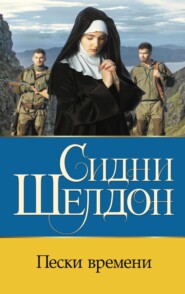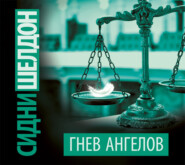По всем вопросам обращайтесь на: info@litportal.ru
(©) 2003-2025.
✖
Sidney Sheldon’s Reckless
Автор
Год написания книги
2019
Настройки чтения
Размер шрифта
Высота строк
Поля
No one’s coming.
And really, why should they come? Hunter Drexel had never felt or shown any particular loyalty to his homeland. What right did he have to expect loyalty in return?
Hunter had never understood the concept of patriotism. Allegiance to a country, or an ideology, was utterly baffling to him. People like Group 99, who devoted their entire lives to a cause, fascinated him. Why? Hunter Drexel saw the world only in terms of people. Individuals. People mattered. Ideas did not. Hunter had more in common with Group 99’s worldview and political beliefs than he did with Bob Daley’s. Yet Bob was a good person. And Apollo, or whatever his real name was, was a bad person. In the end, that was all that mattered, not the labels that either man lived under:
Soldier.
Radical.
Terrorist.
Spy.
They were nothing but empty words.
If Hunter Drexel identified himself as anything, it was as a journalist. Writing meant something. The truth meant something. That was about as ideological as Hunter got.
He looked around the wooden cabin that had been his home for the last few months and tried to slow his breathing. The heavy wooden door was wedged shut with a split tree trunk and armed guards took shifts outside. Since Bob’s death two solid iron bars had been nailed across the window. Beyond it lay miles of impenetrable forest, an army of tall, darkly swaying pines above a thick white blanket of snow. In their wilder moments of fantasy, Hunter and Bob had concocted escape plans. All were insanely risky, preposterous really. The kind of thing that would work in a cartoon. And all involved two people. Alone, escape was quite impossible. The only way out of here was the one that Bob Daley had already taken.
Hunter lay back, not calm exactly, but past the hyperventilating stage. Acceptance, that was the key. Letting go. But how did one accept one’s own death?
His mind drifted to a story he’d heard on the radio yesterday, about the Greek prince who’d hung himself at Sandhurst. Achileas. It sounded like one of the stupid names Group 99 gave themselves. There was much hand-wringing about the boy’s death and an “official inquiry” had been launched.
As ever, it was the human side of the story that gripped Hunter.
Here was a young man with everything to live for, yet who had chosen to die.
Perhaps if Hunter could understand that impulse, the impulse that drove a young prince to embrace death like a lover, he would feel less afraid?
Slowly, Hunter Drexel drifted into a fitful sleep.
THE NOISE WAS A LOW BUZZ at first. Like insects swarming.
But then it got louder. The unmistakable whir of chopper blades.
“Dimitri.” One of Hunter’s guards grabbed the shoulder of his companion, shaking him awake. “Listen.”
The other guard slowly struggled out of sleep. Like Dimitri he was only nineteen. Both boys were French. This time last year they’d been studying computer science in Paris. They’d joined Group 99 for a lark, because a lot of their friends were doing it, and because they loosely supported the idea of taking the world’s super-rich down a peg or two. Neither of them quite knew how they’d ended up in a Bratislavan forest, freezing their tits off and armed with machine guns.
By the time they got to their feet, strobe lights filled the sky. The whole camp was bathed in blinding light. Then the first shots rang out.
“Shit!” Dimitri started to cry. “What do we do?”
Already the helicopters were so loud, it was hard to hear one another.
“Run!” yelled his friend.
Dimitri ran. He heard shots behind him and saw his friend fall to the forest floor. He kept going. His legs felt like jelly, as if all the strength had been sucked out of them.
The camp was a horseshoe of canvas tents clustered around the cabin. There were also two breeze-block structures, one used as a weapons store, and one as a control center, complete with a generator, satellite phone and specially customized laptop. The second structure was closest. Dimitri staggered toward it. All around him, group members were emerging from their tents, bleary-eyed with panic. Some waved guns around, but others were unarmed. Atlas and Kronos, two German lads had their hands in the air. Dimitri watched in horror as they were mown down anyway in a hail of bullets, their limbs flailing grotesquely like dancing puppets as they died.
Then something hit him from behind. Not a bullet or a stone. It was a gust of wind, so powerful it blew him off his feet. The choppers had landed. Suddenly all was chaos, light and noise. American voices were shouting. “ON THE GROUND! GET DOWN!”
Dimitri screamed, a child’s wail of terror. Then suddenly, arms were around him, under his shoulders, dragging him into the control center.
“You’re OK.” Apollo’s voice was firm and calm. Dimitri clung to him like a life raft.
“They’re going to kill us!” the boy screamed.
“No they’re not. We’re going to kill them.”
Dimitri watched as Apollo pulled the pin out of the hand grenade with his teeth and lobbed it toward the men who had just killed his friends. As they were blown into the air, their legs came off.
“Here.” Apollo handed him a grenade. “Aim for the choppers.”
INSIDE THE CABIN HUNTER DREXEL COWERED under a table.
The noise of the Chinooks was the most beautiful sound he’d ever heard.
They’re here! They found me!
Even the gunfire, the all too familiar pap pap pap pap of machine guns he remembered from Iraq and Syria sounded soothing to his ears, like a lullaby, or a mother’s voice.
Boom! The cabin door didn’t so much open as explode, shards of wood flying everywhere. Smoke filled the room in seconds, disorienting him. Hunter’s ears were ringing and his eyes stung. He heard voices, shouts, but everything was muffled, as if he were hearing them under water. He waited for someone to come in, a soldier or even one of his captors, but no one did. Crawling on his belly, Hunter began feeling his way towards the space where the cabin door used to be.
Outside, he quickly got his bearings back. Stars up. Snow down. The Americans—presumably?—were mostly in front of him and to the right, directly facing the camp. To his left, what was left of Group 99 had taken up position in the two breeze-block buildings and were firing back. Gunshots flashed in the blackness like fireflies. Occasionally a strobe or flare would illuminate everything. Then you could see men running. Hunter watched as three of the American soldiers were gunned down just feet in front of him. His captors were clearly not giving up without a fight.
A whimpering sound to his left, like a wounded animal made him turn around.
“Help me!”
Crawling towards the sound, Hunter found the English boy codenamed Perseus sprawled out in the snow. Hunter had a particular soft spot for Perseus with his skinny, chicken legs, cockney accent and thick, dorky glasses. Hunter had nicknamed him “Nerdeus.” They often played poker together. The boy was good.
Now he lay helplessly on the cold ground, his eyes wide with shock. A deep crimson stain surrounded him. Glancing down Hunter saw that both his lower legs had been blown off.
“Am I going to die?” he sobbed.
“No,” Hunter lied, lying down next to him.
“I can’t feel my legs.”
“It’s the cold,” said Hunter. “And the shock. You’ll be fine.”
Perseus’s eyes opened and closed. It wouldn’t be long now.
“I’m sorry,” he whispered. “I never meant for … all this.”
“I know that,” said Hunter. “It’s not your fault. What’s your name? Your real name.”

















